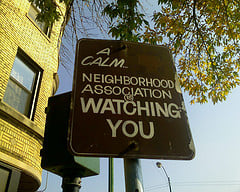 In an ideal world, posts concerning ethics would not be necessary. In such a world, everyone would operate by the Golden Rule, treating everyone else the way they wish to be treated. Unfortunately, that doesn't always happen, and people sometimes fail to act ethically. And here's the thing: Not all people who behave unethically are moustache-twirling villains. Sometimes unethical behavior happens when people get too focused on the bottom line or get a little (or a lot) sloppy, forgetting that at the end of the day, real estate investors are in the people business.
In an ideal world, posts concerning ethics would not be necessary. In such a world, everyone would operate by the Golden Rule, treating everyone else the way they wish to be treated. Unfortunately, that doesn't always happen, and people sometimes fail to act ethically. And here's the thing: Not all people who behave unethically are moustache-twirling villains. Sometimes unethical behavior happens when people get too focused on the bottom line or get a little (or a lot) sloppy, forgetting that at the end of the day, real estate investors are in the people business.
A recent phenomenon in Turn-Key real estate is to be the "low-cost" provider. How is that unethical? It only becomes unethical when being the low-cost provider crosses into intentionally leaving items untouched, unfinished or even putting bandaids on major problems to keep the costs low. More than I care to remember, I have been called by investors asking for help with a home that they bought dirt cheap with really high return numbers, only to be told by their provider that they got exactly what they paid for...a dirt cheap house with lots of problems!
We were recently copied on an email from a client where another provider they worked with actually bragged that they did cheap, half-assed (excuse the word, but the truth hurts) work to keep the costs down thus provider a "true, wholesale" price. They went on to explain that companies like Memphis Invest, GP were too expensive because we did TOO MUCH work to investment properties instead of skimping and holding costs down. I have paraphrased their three paragraph email, but I still could not believe they actually put that in writing.
Real estate ethics is a vast topic that we could write reams about, so it may be something that we revisit later. But for now, let's look at a few practical refresher tips on how to be an ethical investor, and more importantly, how to be an ethical investment property provider.
Full Disclosure
If you're trying to sell a property, it's important that you disclose anything about a property that could adversely affect its value or cause the buyer problems before it's sold. Maybe it's something you can get away with keeping it to yourself. Maybe it's something they'll never notice. Maybe it doesn't seem like a big deal to you, and who knows -- maybe it wouldn't even be a big deal to them.
Tell them anyway.
It's the right thing to do. And no matter how many times you get away with not disclosing something you should, it only takes one time of not getting away with it to ruin your good name. If there is one thing that being an entrepreneur will teach you after a while, it is that your name, your credibility and the integrity with which you do business are the only things you have.
Do Your Due Diligence with Prospective Renters
You may be asking yourself, "How does this relate to ethics?" It's simple: You don't want to be known as a landlord whose tenants bring down property values with their antics. If you rent to someone who throws loud parties at all hours of the night or whose behavior tends to bring law enforcement to the premises, you're not going to endear yourself to anybody. If you rent to tenants that will treat the front yard of your property like one big flea market swap, you are probably going to have a few ticked off neighbors. Do a background check and inquire of a prospective tenant's current landlord and previous landlord. Why the previous? Because it's possible the current one could be holding back negative information just to get rid of a bad tenant! The previous landlord has no dog in the hunt.
One last tip would be to visit the property that a prospective tenant currently occupies. It never hurts to see how a tenant treats the property they are currently living in. It is hard for tenants to change their habits, although it can happen if you lay down the law early. For some, the choice to avoid tenants with bad habits is the better choice from the beginning and doing a really thorough check into the important things will help.
Keep Up Your Properties
If a property is occupied, stay on top of any maintenance issues that arise. Make sure your tenants know that it's their responsibility to keep the property's exterior from becoming an eyesore by keeping all visible areas free of debris and junk. Once again, some of this goes back to proper screening of prospective tenants.
If the property is vacant, do what you need to do to keep the property in good shape. It's your ethical responsibility to be a good "landlord neighbor" in order to do what you can, within reason, to protect property values. Besides being the right thing to do, the good reputation you're establishing in the process may even bring you more business. It's certainly not going to hurt you to become known as a landlord who takes good care of his/her property and insists on tenants doing the same. Premier Property Management Group has become known as a high-quality property management company in both Memphis in Dallas because we want our properties to show prospective tenants that we take pride in how they look. It has helped us to get properties rented quickly and for longer terms. We have even removed signs from our yards when we manage for other owners if they are not willing to keep their properties up to our standards. That is a big deal when you manage properties for owners that did not buy from your company. Even though that makes up only a small fraction of our business, in the future it may make up more and we want to set the standards early for how we expect properties to look if we are going to manage them.
Can you think of any other practical, everyday ways to practice good real estate ethics? Tell your favorite Memphis real estate experts in the comments!












